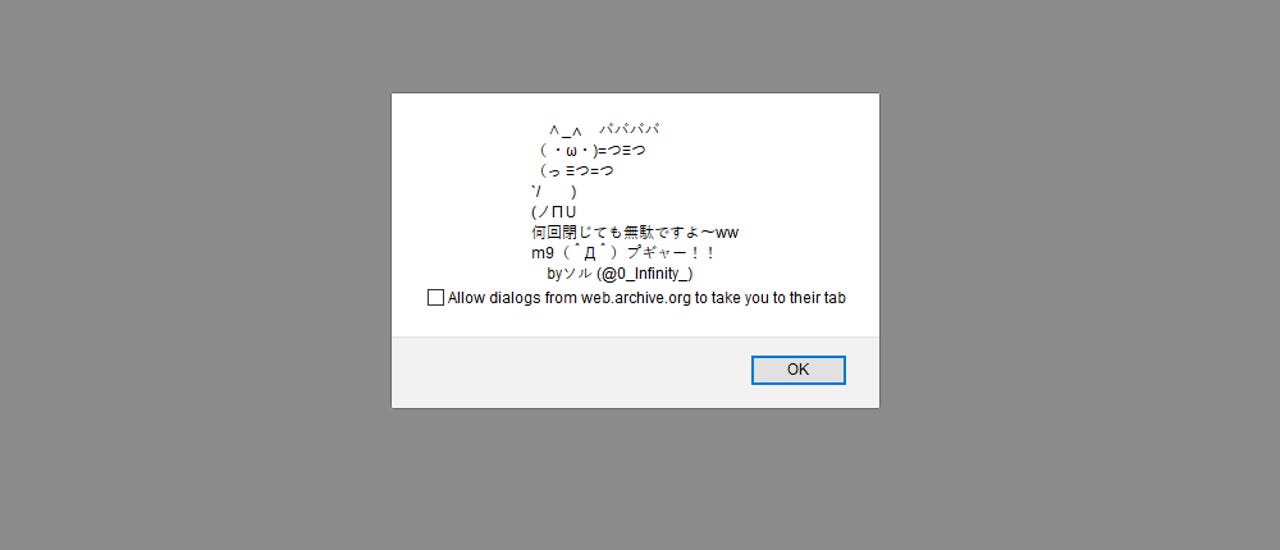Japanese police charge 13-year-old for sharing 'unclosable popup' prank online

Japanese police have brought in, questioned, and charged a 13-year-old female student from the city of Kariya for sharing browser exploit code online.
Security
The code was a mere prank that triggered an infinite loop in JavaScript to show an "unclosable" popup when users accessed a certain link, Japanese news agency NHK reported yesterday.
The popup could be closed in some browsers --such as Edge and Firefox on desktop-- but couldn't be closed in others, such as Chrome on desktop and the majority of mobile browsers.
The popup was hosted in several places online, and police say the teenager helped spread the links (archived page here --don't access on a mobile device).
The teenage girl did not create the malicious code, which had been shared on online forums by multiple users for the past few years.
NHK reported that police also searched the house of a second suspect, 47-year-old man from Yamaguchi, and are also looking at three other suspects for the same "crime" of sharing the link on internet forums.
Japan is a country that has been historically tough on cyber-crime, even on its lightest forms.
For example, Japan was the first country to send a person to prison for embedding the Coinhive in-browser cryptojacking script inside a game cheating tool. In July last year, Japanese authorities sentenced a 24-year-old man to one year in prison, suspended for three years, despite the man making only $45 from his exploits.
In September 2017, Japanese police also arrested a 13-year-old teen from Osaka for creating, advertising, and selling a mobile virus that blocked smartphone screens and prevented users from using their device.
Japanese police also arrested a 17-year-old boy in February 2018 for creating malware that stole the passwords of cryptocurrency wallets, and another 14-year-old in June 2017, for creating ransomware, and later sharing the code online, despite the teen never using the ransomware in any attacks, and later admitting to having created it as a curiosity.
ZDNet would like to thank our reader, Sh¿ttyKids, for the tip.
The FBI's most wanted cybercriminals
Malware and cyber-crime related coverage:
- Ransomware attack on Israeli users fails miserably due to coding error
- Coinhive cryptojacking service to shut down in March 2019
- Hackers have started attacks on Cisco RV110, RV130, and RV215 routers
- WordPress accounted for 90 percent of all hacked CMS sites in 2018
- Researchers uncover ring of GitHub accounts promoting 300+ backdoored apps
- Vulnerability exposes location of thousands of malware C&C servers
- Malware can now evade cloud security tools TechRepublic
- Cryptomining malware discovered masquerading as Flash updates CNET
